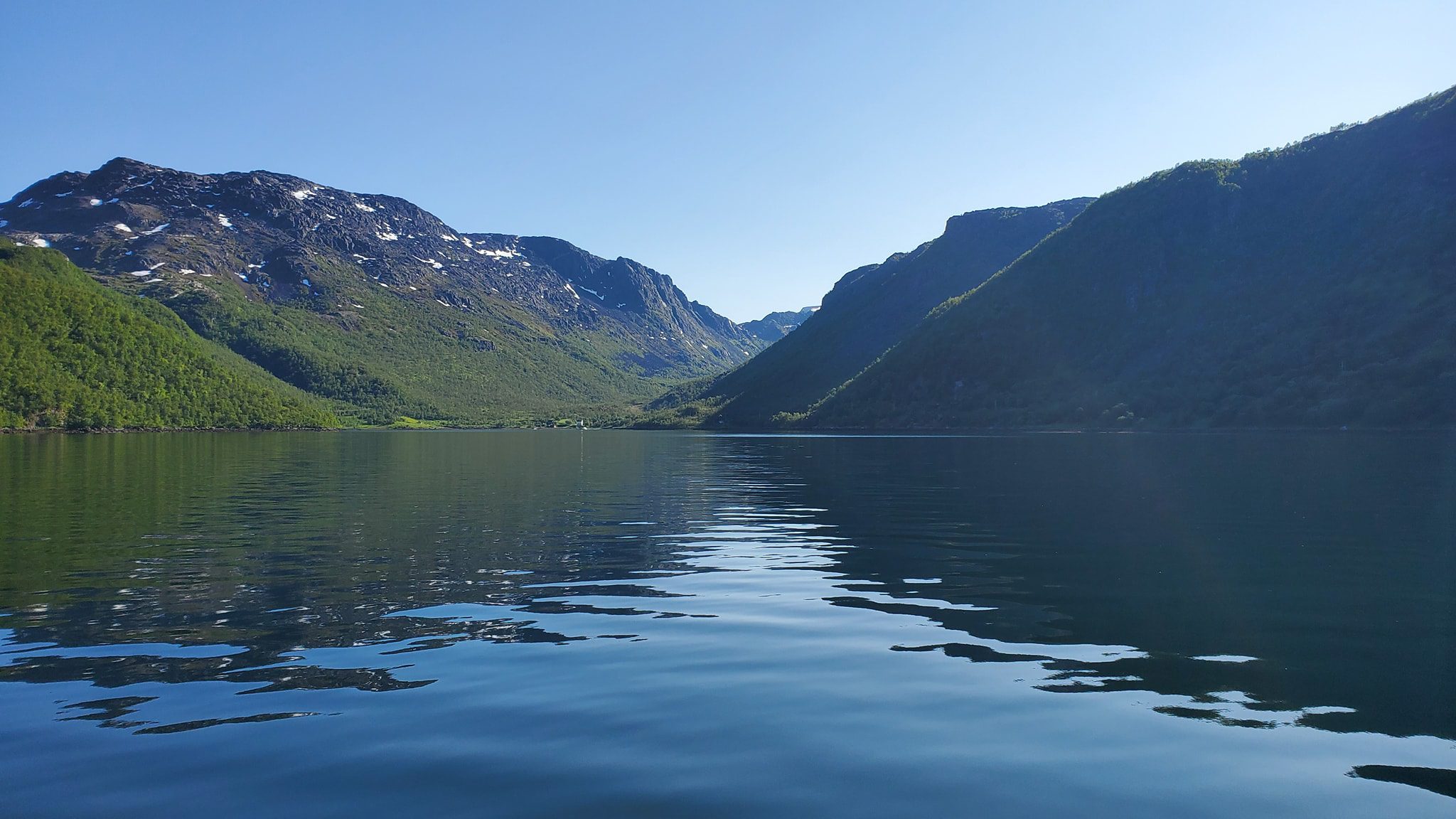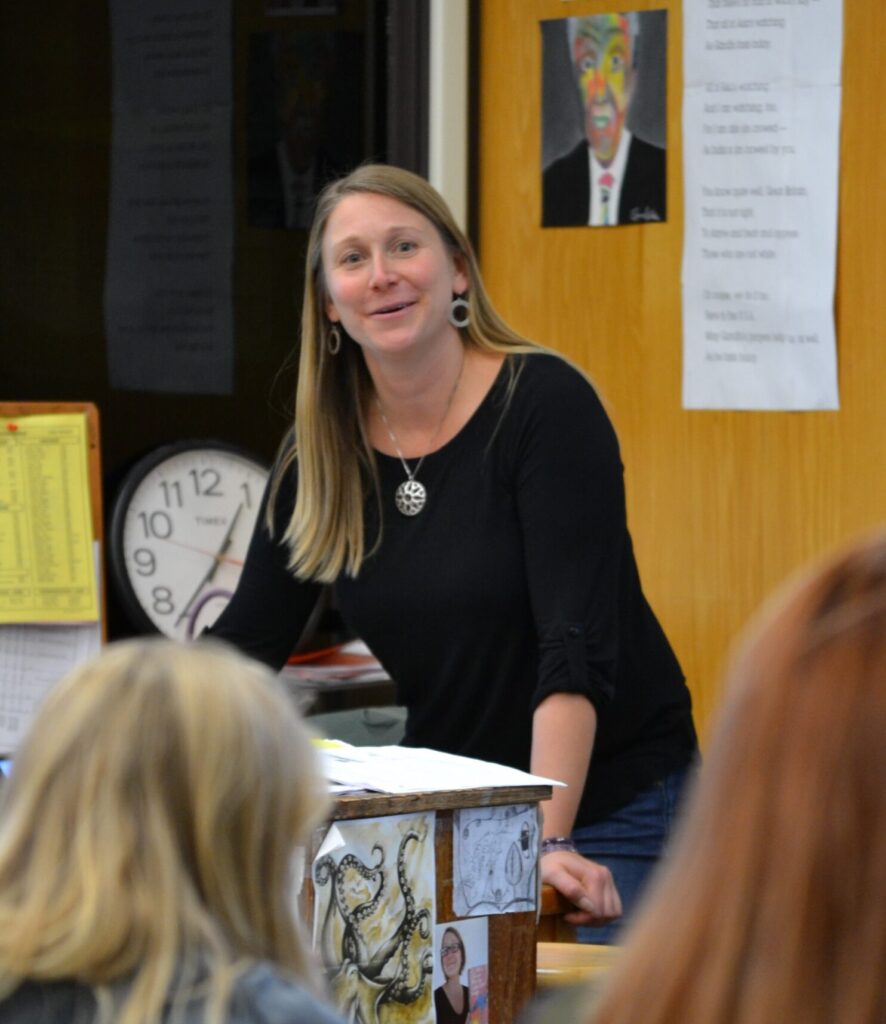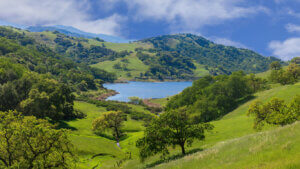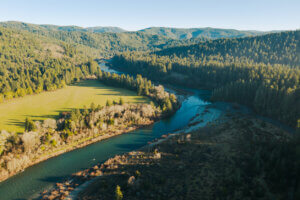For Tara Kajtaniak, educator at Alder Grove Charter School in Eureka and university supervisor at Cal Poly Humboldt, being deeply connected to the environment is rooted in her background. Growing up with a Sámi-Norwegian father from a small fishing village in the Arctic Circle of Norway, she was introduced to the importance of nature and sustainability at an early age.
“I spent a lot of time in my father’s village, called Kvalfjord, where my family has been engaged in fishing and the broader community in reindeer herding for generations,” she explains. “We’ve also been watching our glaciers disappear for decades.”
“We’ve all been viscerally experiencing this for a really long time. So when I decided to teach, it was never a question of whether or not to include environmental and climate literacy. I knew it didn’t matter what type of teacher I became; climate change was going to be in the curriculum.”
Empowering Educators Through Mentorship
In addition to supporting independent studies students at Alder Grove Charter School, Tara mentors and supervises credential candidates getting their secondary teaching credentials at Cal Poly Humboldt. She works with new teachers in the classroom and leads local professional development opportunities focused on integrating environmental literacy into English language arts through the Redwood Writing Project.
Tara’s advice to fellow educators: “Let go of perfectionism.” She encourages educators to meet students where they are, recognizing the unique strengths and knowledge each individual brings to the table. “Utilize students’ funds of knowledge,” she advises, suggesting educators draw on students’ lived experiences to inform their teaching. This approach validates students’ perspectives and empowers them to take ownership of their learning.
Moreover, Tara urges educators to ask what strengths they can leverage to address local environmental issues. “What can we do right here, right now?” By fostering a culture of inquiry and collaboration, students get inspired to become active participants in their communities and stewards of the environment.
In her mentorship role, Tara helps teachers to look at environmental issues and environmental justice issues through the lens of reading and writing and listening and speaking and poetry and art and literature.
“For so long, it’s been relegated to the realm of science. And I think we’re at a point now where we really need environmental literacy and justice in every single content area.”

Amplifying Stories and Building Networks
Through her work, Tara is not only addressing environmental issues but also weaving narratives that resonate with students and educators alike. She works within the Professional Learning CAELI-Wide Initiative, where one project focused on amplifying success stories from English language arts teachers who incorporate environmental themes into their teaching in a podcast series.
“We are telling the stories of several teachers who are doing amazing environmental work around the state,” she shares. “This project allows us to push boundaries and dream big about environmental literacy in the ELA classroom.”
CAELI has also supported Tara by giving her a network of mentors, especially in the Professional Learning CAELI-Wide Initiative. “CAELI has given us both the green light to dream big and the guidance to be able to pull this project together, which is really exciting.”
Inspiring Hope in the Face of Climate Challenges
While the urgency of climate change can be overwhelming, Tara believes in focusing on small victories and solutions. “We have the solutions,” she affirms. She also highlights the importance of amplifying hopeful voices and Indigenous perspectives. Despite the challenges, Tara emphasizes the need to recognize progress: “We can’t ignore the big elephant in the room, but we also can’t fall into eco-despair.”
Whether mentoring educators or engaging students through hands-on experiences, Tara is shaping a future where climate education is central to every classroom with passion, collaboration, and a deep sense of responsibility.







